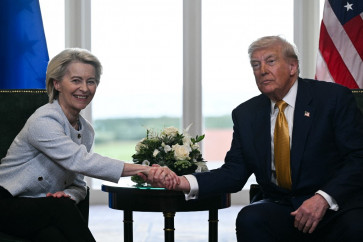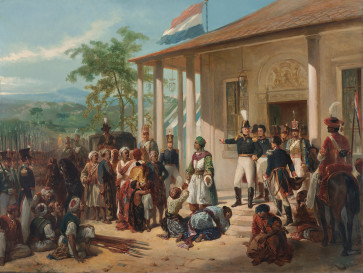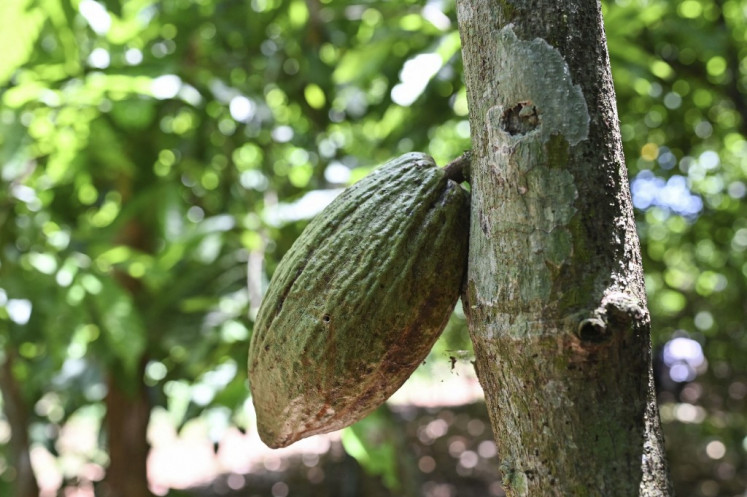Popular Reads
Top Results
Can't find what you're looking for?
View all search resultsPopular Reads
Top Results
Can't find what you're looking for?
View all search resultsDAAD holds German study event
Germany has long been the destination of choice for Indonesian parents and students wanting to pursue higher education, from bachelor up to doctoral level, partly with scholarships provided through the German Academic Exchange Service (DAAD)
Change text size
Gift Premium Articles
to Anyone
G
ermany has long been the destination of choice for Indonesian parents and students wanting to pursue higher education, from bachelor up to doctoral level, partly with scholarships provided through the German Academic Exchange Service (DAAD).
The service is organizing a German Higher Education InfoDay to provide information to both parents and prospective students on studying and living in Germany, including all the administrative requirements such as language and visas.
The event will be held at the Kempinski Grand Ballroom on Saturday.
DAAD Jakarta director, Irene Jansen, said on Friday that the exchange service was involved in three major activities: scholarships, information and marketing.
“The DAAD InfoDay is aimed at providing information to parents and students about studying in Germany so that they can make an informed decision,” she told a media conference.
“They will also be given the chance to meet other Indonesians who have already studied in Germany.”
Jansen, who also oversees DAAD offices in Malaysia, Thailand and Timor Leste said the exchange service did not provide scholarships for undergraduate courses as most of those courses were free.
Initially an initiative by university students in Heidelberg to promote academic exchange and internationalization, DAAD was founded in 1925 to professionally facilitate such exchanges as a non-profit organization.
As for scholarships, Jansen said that in 2013 DAAD Jakarta was managing some ¤6.2 million for Indonesian recipients, a 10 percent increase compared to 2012. The worldwide figure was well over ¤400 million, she added.
DAAD data shows that the exchange service sponsored 272 Indonesian graduate students in Germany last year, and Jansen expected that number to increase this year.
Indonesian students ranked fifth among Asian students studying in Germany after China, South Korea, India and Vietnam. While around one-third of Indonesian students pick engineering subjects, there are also students studying in other fields, such as mathematics and natural sciences, law, economics and social sciences, agriculture and forestry.
Boasting one of the world’s oldest and most established university systems, Germany has 109 universities, 211 universities of applied sciences and six colleges of further education.
Jansen said the advantage of studying in Germany was that it was not all focused on science and technology, but also arts and culture.
“Berlin, for example, has three opera houses, which is a considerable number for a city with 3 million inhabitants,” she said










